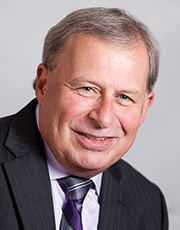
Resort at Loon Mountain
The good news is familiar to everyone in the real estate industry: the homeownership rate rose to 64.2% in the fourth quarter of 2017 from 63.7% a year earlier, according to data released by the U.S. Census Bureau. Furthermore, the share of Americans who own a home has been on the rise since the first quarter of last year.
With the millennial generation driving the increase in first home ownership, the next wave to watch is what will happen in the market for vacation home ownership, especially in New England. One of the emerging trends for second homebuyers is fractional ownership of vacation properties.
Fractional ownership is similar to a timeshare in that owners gets to use the property for a given number of weeks per year, but different in that they also own real property, not just time. If the fractional owner can’t or doesn’t want to use any part of the nine weeks they are allocated, the resort may rent the unit and split the proceeds with the owner who has literally bought a fractional share of a residence.
This trend is on the upswing. According to the American Resort Development Association, over 20 million Americans have invested in fractional ownership, which is one of the factors contributing to the growth of the vacation home market overall. For the millennials, a generation accustomed to flexibility and choice in every aspect of their lives, the ability to be fractional owners speaks to their desire to create an individual balance between the time they spend in their vacation home and the money they invest. Fractional owners also get to choose the lifestyle that they like and enjoy the seasons that they want to enjoy.
This model is an especially attractive prospect for avid skiers in the northeast, who want to spend as much time as they can in close proximity to the slopes, which is often cost-prohibitive for total ownership. For millennials, who grew up enjoying family vacations in New England, it’s often nostalgia to re-create fond memories that is bringing them back to the area. New England travel stats tell the story. For example, in New Hampshire, where tourism is the state’s second largest industry, vacationers generate more than $5 billion of economic activity per year and a recently-reported yearly snapshot showed a 4.7% increase in number of visitors annually.
The western White Mountains of New Hampshire, in particular, have seen rising interest among young families who enjoy year round activities from fall foliage and winter skiing to spring hiking and summer fun.
The fractional – or deeded – ownership, offered by resort properties comes at a lower price-of-entry, for starters. At RiverWalk Resort at Loon Mountain, for example, fractional ownership can be purchased in whole, seasonally or fractionally, and includes studio condominiums starting at $60,000 and tops out with three-bedroom condos in the $200,000s. However, they offer something more: amenities and service that make time spent at the property feel like true vacations, with zero responsibilities for upkeep. Amenities at RiverWalk Resort include a winery production and tasting room, a full-service day spa and an Italian restaurant
For a resort property owner, there is an opportunity to sell out a building quickly.
At RiverWalk Resort, sales have been brisk, and the resort is poised to roll out Phase II, which would add approximately 60 additional turnkey residential units and a conference center onto the RiverWalk Resort building while also doubling the sizes of existing amenities.
New England fractional owners in resort communities get prime locations, amenities, activities and affordability. As a business model, it’s a win-win for both buyers and sellers.
Dennis Ducharme, RRP, is president of RiverWalk Resort at Loon Mountain, Lincoln, N.H.
